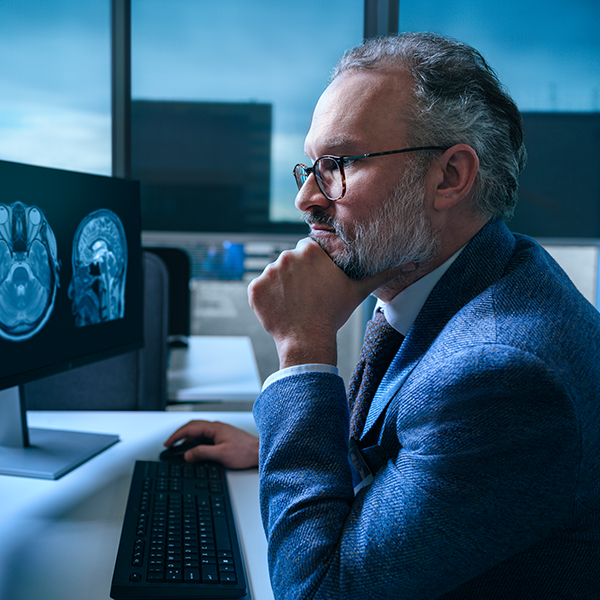-
Science Saturday: Brain tumors hijack growth proteins

What makes some brain cancers so hard to treat? Researchers in the laboratory of Alfredo Quiñones-Hinojosa, M.D., Chair of Neurologic Surgery on Mayo Clinic’s campus in Florida, looked at devastating brain tumors known as chordomas to understand why those tumors are capable of growing so aggressively. In a study published in Cell Reports, they found the tumors do their dirty work by hijacking growth machinery that exists in stem cells. Stem cells—the undifferentiated cells capable of turning into any cell in the body—have two particular proteins that are activated when the body is first developing. These proteins are responsible for growing the body’s organs, but the proteins become inactive after the organs reach the appropriate size. However, chordomas manage to co-opt those proteins and use them to thrive.
The study shows that the pro-growth protein called Yes-associated protein, or YAP, that helps stem cells grow and is also known to be overexpressed in certain cancers, helps chordomas progress. The study also shows for the first time that the stem cell-related protein called brachyury, a known biomarker of chordomas that’s overexpressed in a variety of cancers, is a powerful regulatory agent: it controls the synthesis of YAP. “The study showed for the first time that these proteins become powerful weapons that work together to drive the tumor’s aggressiveness,” says the study’s lead and first author Sagar R. Shah, Ph.D., a postdoctoral fellow at Mayo Clinic.
Interestingly, the study found these two proteins involved in chordoma growth are also linked together in other hard-to-treat cancers. In glioblastomas, a type of brain tumor that currently has no cure, brachyury similarly regulates the production of YAP. In lung cancer, brachyury does its job by maintaining the stability of YAP, another means of keeping the growth protein functional. Dr. Quiñones-Hinojosa’s team is interested in investigating drugs capable of interfering with this growth machinery to temper the aggressiveness of chordomas. His lab currently is in the process of developing clinical trials based on their preclinical studies. Ultimately, the team hopes a drug capable of interrupting the brachyury-YAP protein interaction in chordomas will be effective in other lethal cancers, including glioblastoma and lung cancer. “Our goal is to find cures for these devastating diseases and give hope to patients suffering from these cancers,” says Dr. Quiñones-Hinojosa.
The study was funded by grants from the National Institutes of Health and the Chordoma Foundation.







